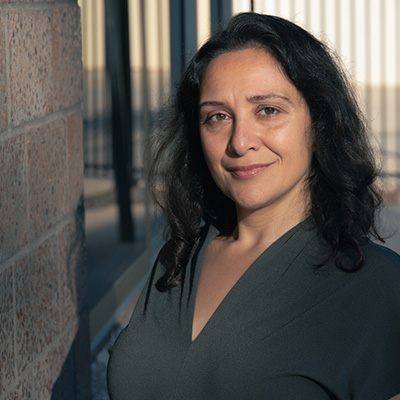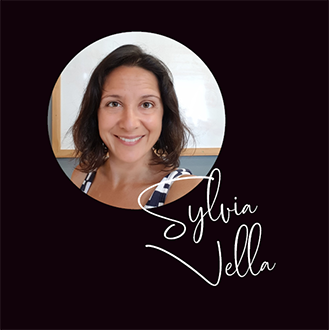What is the purpose of the website?
Who are you speaking to?
What do they need to know about you, your company and your product/service?
What comes after www?
Try to keep it as short as possible as you will be repeating this often…
especially in email.
Get the most out of your webhost. It’s not all about price and space.
Consider regular backups and any extras.
What pages are you going to have and what content is going to be on each page?
Website text needs to be clear, concise, in the first person and use common search terms to help search engines find your business.
Create a style that conveys your brand’s values and attitude. Professional images are a must!
A privacy policy is a legal requirement for websites that collect any data.
DIY or hire someone?
It’s a question of time, budget and professionalism.
As I waved the kids off on the bus this morning, I began reflecting on the websites I have built so far and the consultations I have been involved in. Of course, every website project is unique, though there are common elements to consider when building websites.
What is the purpose of the website project you are embarking on?
Set clear objectives now. Your goals will influence the overall design.
What comes after the www? Personally, I prefer to keep it short and snappy because you’re going to be saying it and spelling it… a lot. It’s also got to fit on your business card, stationery, signage and the bottom of each email.
Someone, who isn’t as familiar with your brand needs to type it. Keep it simple.
This is the company you pay to put your website files on their server. Generally, your email is in this service as well. It’s easier if you get your domain name from this company as well … just one less supplier to pay and one less log-in really. There are certain circumstances where the company hosting your domain name is different to the company hosting your website such as if you are a school.
It’s a good idea to have a look at the services offered to ensure you are getting the right deal. Daily backups are a must for me but how many days do they back them up for? I also look for free SSL Certificates and an Australian company so I can contact them easier.
Once you’ve got the domain and know where it’s all going to be securely stored, it’s time to look at what the website is going to have in it. How is the information going to be organised? What is actually going to be on each page and how is the viewer going to navigate to it? What role do landing pages have to play here?
A website that is just text can be very hard to look at (even with a beautiful custom font). Convey a message, make an impression with the right colours, images, illustrations and video that reflect your organisation. It might be with photos on your phone or stock imagery. You may invest in hiring a photographer and holding a photoshoot. A video production company can help you consolidate your look/feel/style/message into a video. Maybe consider hiring an illustrator to create icons and/or images that are unique to your organisation. This is a reflection of your business or organisation… best not to cut corners on this one.
This is what the words actually say on the site. If you’re selling something put those key benefits out there. Ensure that the viewer understands what you’re saying and what they are going to find there with clear, concise language. Use snippets of text that lead to other pages in your site and key search terms to make it easy to read and easy for search engines to link your content with a person’s search.
Is your website going to collect any form of data from the person visiting it? Probably, and for this you will need a privacy policy. There are many templates out there but I suggest drafting one and speaking to a lawyer about it to ensure you’ve got the right information in there.
After we’ve put in all this work, it’s finally time to sit down and start creating it. Thankfully technology has advanced and there are some fabulous builders out there that can help. Sure, you can use one of the free builders and DIY. There is nothing wrong with that as long as your organisation is reflected in a professional manner. A professional website creates trust in the viewer. If you might not be able to make it look the goods, hire someone who can. Have a look at their portfolio and ask for samples of what they have done. If you feel their style works for you, then go with it.
A website that sells products needs additional development. Each product needs to be photographed (possibly multiple angles), measured and weighed. Inventory needs to remain updated in the case that you have a store front location as well. Your website will need a reliable SSL Certificate and you’ll need to create accounts for payment and shipping options. It will take time to research the best option and incur additional costs. The plug-ins and tools are out there but rely on you (or your web developer/designer) to input the information.
I’m not going to get too far into this here but there are little things we do when building websites to help you get found. These tricks are things like entering alt text into images, naming the images in a descriptive way and coding your headings to show search engines what is most important content on your website. It needs to happen though!
Through developer tools, you can submit your website to Google and Bing. It does take a bit of technical know-how but it’s not hard to do.
Once it’s up there, it’s not about forgetting it. You will need to adjust it regularly with fresh images, content or additions.
In summary, when you’re developing a website project consider all aspects of it from the outset. There is a lot of work going on in the background to make it look as awesome as it does and work like it needs to. This does take hours so if you are hiring someone, budget accordingly.
And do you need a website? Of course, you do.
How often do you consider buying something and go to the website to find out more about it? It’s a mainstay of our world and the way we operate.
This process does not need to be overly difficult and take up all of your time. At Bee Box Marketing, we offer most of the services mentioned here. If you need a hand, get in touch and let’s chat about how we can work together.

Most of the websites I have created include my expertise in consulting on the above considerations, writing the content, creating graphics, editing images, building the site and managing SEO tasks. It’s lots of work but I love it! The best part is gaining feedback from the business about how the new site resolved business challenges.

We would love to chat with you about your next project. We work Monday to Friday 8:30am – 4:30pm though we’re a small business, so anytime is a good time.
Based in sunny Geraldton WA, but happy to work beyond.